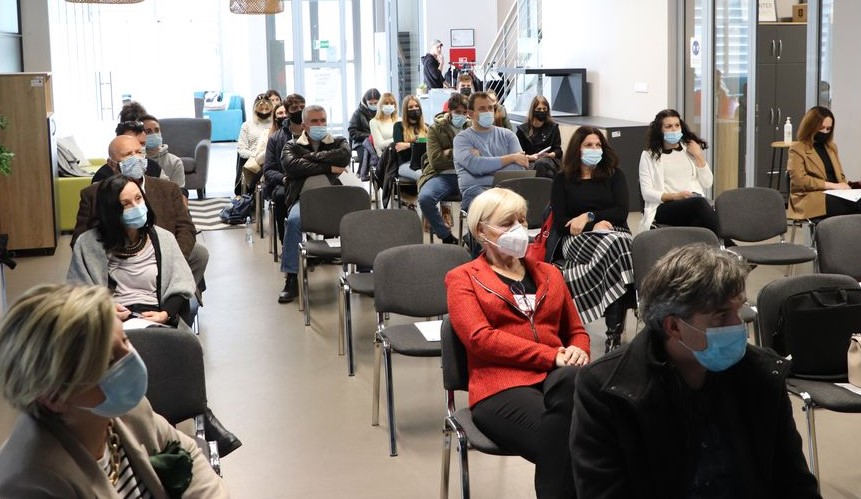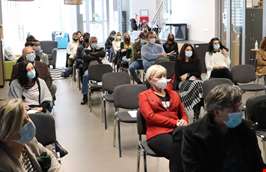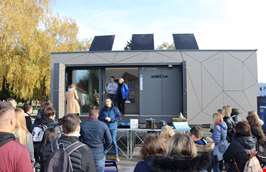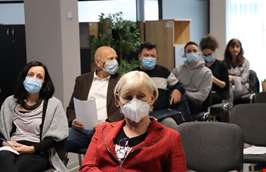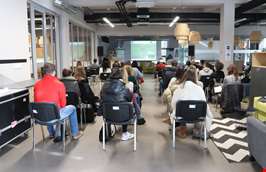03.11.2021.
In the panel on the importance of education in the field of energy efficiency and sustainable building, the representative of the Fund Nirvana Franković Mihelj, PhD, explained the role of the Fund in the implementation of the measures related to climate change and the sources of financing.REA North in cooperation with the Faculty of Civil Engineering in Zagreb and the Town of Koprivnica organised the panel entitled “Importance of education in the field of energy efficiency and sustainable building” on the premises of Enter. The panellists included lecturers from the Faculty of Civil Engineering in Zagreb, the representatives of the Regional Energy Agency North, the representative of the Ministry of Physical Planning, Construction and State Assets, the Environmental Protection and Energy Efficiency Fund, and the Croatian Green Building Council.
During the panel, Mrs Franković Mihelj explained the measures implemented by the Fund that were contributing to improving air quality in the Zagreb agglomeration and Croatia in general, regarding particulate matter PM10 excess. She also emphasised the importance of the sources of financing from the European Modernisation Fund, with which the Environmental Protection and Energy Efficiency Fund has excellent cooperation.
“To achieve climate neutrality by 2050 – which means the balance between the anthropogenic emissions and natural reservoirs absorbing CO2, such as forests, crops, meadows and similar, decarbonisation measures in all sectors will be necessary, and decarbonisation measures will have to be implemented in all sectors, along with the measures for maintaining and increasing sinks in LULUCF sector. To be more specific, this means that emissions in the energy and other sectors by 2050 should come close to zero through the implementation of the measures for their reduction, while the remaining emissions that will always exist in some sectors such as agriculture and transport, should be offset by the measures for increasing the natural reservoirs that absorb CO2, i.e. they should be counterbalanced with the sinks in the LULUCF sector,” said Franković Mihelj in Koprivnica.
As part of the panel, the mobile house MUZA was presented as an example of the nZEB standards, and an interpretation of modern building. By visiting the buildings on the Campus, the panellists could view their energy efficiency, electromobility, charging stations, electric vehicles and electric bicycles.
